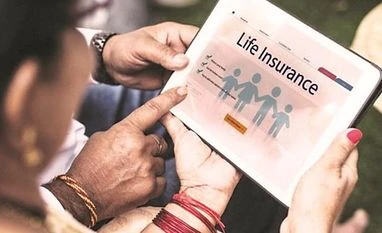Tata AIA Life Insurance's total premium income is likely to grow over 30 per cent to cross Rs 14,000 crore in the current fiscal, a top company official has said.
The industry growth for the first 10 months of the year has been about 20 per cent mainly because of the base effect and if you look at the growth of the company, it is about 32 per cent on weighted new business premium, Naveen Tahilyani, MD & CEO, Tata AIA Life Insurance Co Ltd, told PTI in an interaction.
The life insurer had earned a total premium income of Rs 11,105.09 crore in 2020-21.
"We grew at 32 per cent in the first nine months of this fiscal and close to 40 per cent in the first ten months of the year. So, I expect to close the year with about 35 per cent business growth in new business premium and about 30 per cent growth in total premium. Our total premium should certainly cross Rs 14,000 crore this year," Tahilyani said.
He said the awareness towards buying insurance has increased post-Covid. However, the industry will have to keep building awareness among the customers as it has been like a one-time trigger, and also that the protection gap is still very huge in India.
"I think one of the challenges and the opportunities for the industry remains that we have to continue to build awareness among the customers. If you look at the protection gap in the country today, it is 83 per cent, which means let's have an average Indian should have a cover of say Rs 10 lakh, but instead of Rs 10 lakh, an average Indian has the cover of only Rs 1.70 lakh, which means that the protection gap is 83 per cent. I think the task ahead of us is to spread awareness," Tahilyani pointed out.
Also Read
Second, when you look at Covid peaks when cases go up people start searching for term insurance and the moment the wave recedes, people forget about it.
"People forget about masks and social distancing, among others. They also forget about life insurance, which is why my point is that Covid is only a short term awareness builder. For the long term, we have to do our work ourselves," the official said.
Asked about claims settled by the insurer, Tahilyani said Covid claims came mostly during May-August in the current fiscal because claims are reported with a lag of about two months. The second wave of the COVID-19 happened during April-June of 2021.
"When I look at the gross claims value, about 60 per cent of our claims are coming from Covid cases. So, another way to look at it is that our claims have increased two-and-a-half times because of Covid," he added.
Stating that people now understand term insurance products better, he said today people are comparing 4-5 companies before buying a plan.
"They are comparing on price, brand and claim settlement performance, on which I am happy to say that Tata AIA Life is among the top three. People fully understand what they are signing up for when they are buying a term product. Second, in the last 3-4 years and the last couple of years when Covid started, the industry has started migrating towards guaranteed return products. In guaranteed products, there is absolutely no confusion...in addition to returns, the level of cover is also crystal clear," Tahilyani added.
So, these are the aspects that have served the industry very well and in general, the 13-month persistency level for the industry has gone up. Tata AIA Life's 13-month persistency is now touching 90 per cent.
On the geographical coverage of insurance products, he said the divide is more between urban and rural India.
"When you look at urban India, I don't think there are any major discernible trends across markets. I think in semi-urban and rural India, the general level of insurance, understanding of the product and therefore, the kind of coverage that people are buying is commensurate with their income, and there is a huge opportunity there.
"A large part of our rural population is below middle class. But, in the well-to-do in rural and semi-urban markets, there is a huge opportunity to make customers aware and to make sure they have the right cover for the income and the needs they have," Tahilyani said.
(Only the headline and picture of this report may have been reworked by the Business Standard staff; the rest of the content is auto-generated from a syndicated feed.)
)